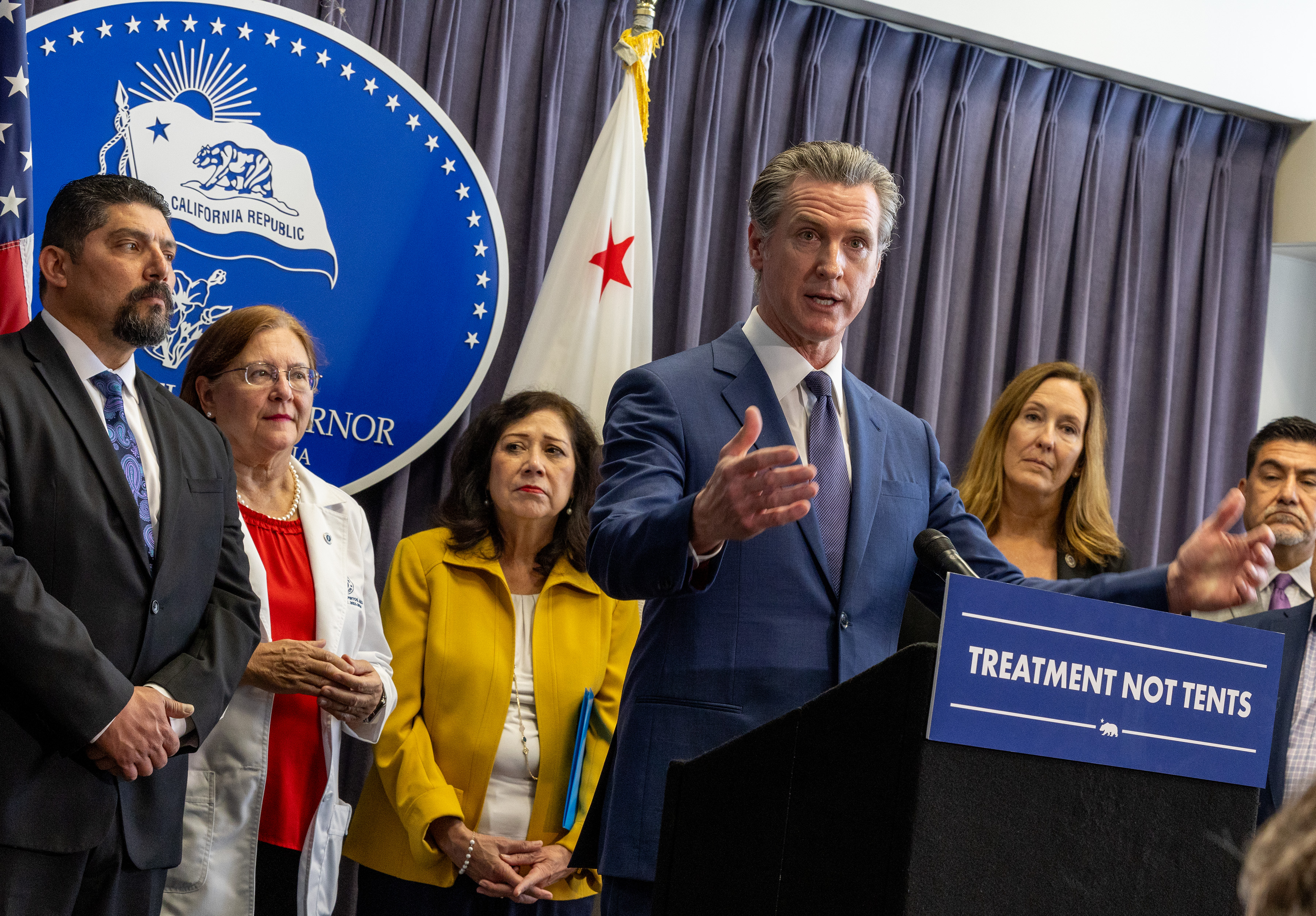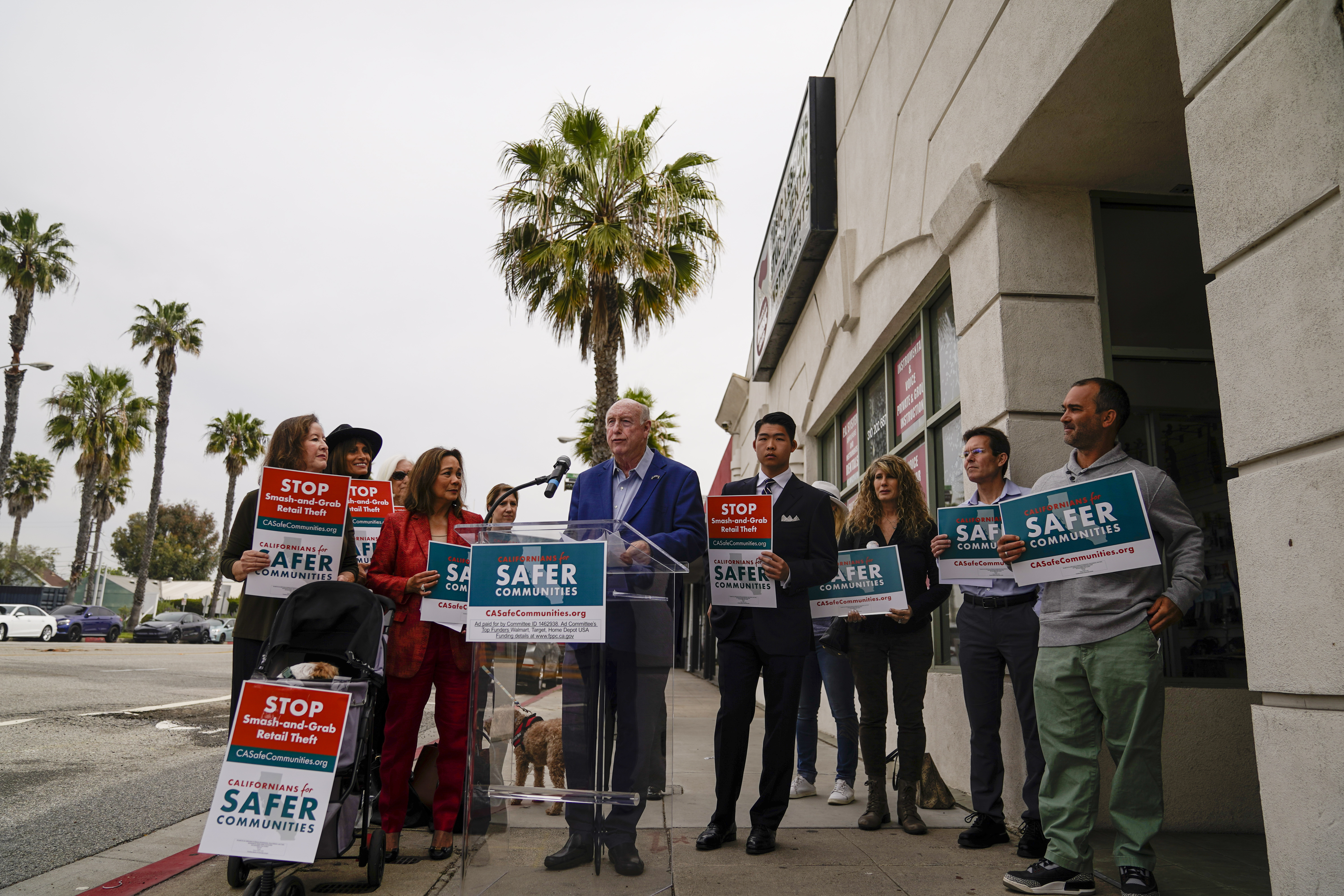| By Christina Jewett and Will Evans |
| Center for Investigative Reporting |
| Publish date: Nov. 6, 2013 |
Days after a Los Angeles County inspector identified possible forgery in the files of a small drug rehabilitation center, she received a hand-delivered letter expressing the clinic’s “profound gratitude.”
Inside was $1,000.
The county labeled it a bribe and dropped its contract with Goretti Health Services in 2008, records show. State investigators sent to check things out confirmed that a clinic leader had handed the inspector the cash.
But with its Drug Medi-Cal contract canceled, the Lawndale clinic kept itself afloat with a second taxpayer-funded program, receiving $380,000 in federal Access to Recovery grants.
The government funds are controlled by two different divisions of the same state department – housed in the same Sacramento building. One division is on the third floor; the other is on the fourth.
A recent series of reports by The Center for Investigative Reporting and CNN uncovered widespread fraud and regulatory breakdowns in the Drug Medi-Cal program, California’s publicly funded drug rehabilitation for the poor.
California
MORE: With Lax Oversight, Fraud Flourishes in California’s Drug Rehab Clinics
But the flow of drug rehab money to Goretti Health Services shows what can happen when two bureaucracies overseeing many of the same rehab centers fail to compare notes.
In all, state authorities in charge of the federal Access to Recovery funds have sent nearly $1.5 million to 11 rehab centers where Los Angeles County had documented questionable billing. Six of them were shut down in a recent sweep of clinic suspensions spurred by the CIR and CNN investigation.
Assemblyman Dr. Richard Pan, a Sacramento Democrat, convened a September legislative hearing examining state oversight of the rehab clinics. Shown documentation of the bribery incident, he said: “Clearly, we need to catch fraud. And when we catch it, we don’t want them to have an opportunity to defraud in other places as well.”
The state Department of Health Care Services terminated Goretti after receiving inquiries from CIR. It said providers suspended from Drug Medi-Cal will be cut from the Access to Recovery program. And it listed communication improvements, including routine information sharing between counties and state divisions.
Since 2004, California has been issued $50 million in federal Access to Recovery funds, designed to reach teens and young veterans. Currently, grant funding goes to counseling services primarily in Los Angeles County, but also in Sacramento, Butte, Shasta and Tehama counties.
The Substance Abuse and Mental Health Services Administration, the federal agency that administers the grant program, declined to comment.
In early 2008, Goretti Health Services was seeking a funding increase. But Los Angeles County authorities were moving in another direction.
The rehab center was launched in 2002 in part by Japhet Ifejoku, currently wanted by the state Department of Justice for alleged Medi-Cal fraud at another rehab clinic. Clinic leaders still at the helm today are Nigerian immigrants and brothers, Executive Director Richard Young Nzenwa and President Richard Bede Nzenwa.
Funded by Drug Medi-Cal, the clinic drew $1 million in taxpayer dollars from 2005 to 2008. Records show it began performing poorly on government audits in 2006.
During a three-day inspection in February 2008, county auditor Antonne Moore discovered that client signatures in medical charts didn’t match signatures on session sign-in sheets. Moore also found that Goretti had documented group therapy sessions conducted by counselors during hours when time cards indicated the counselors weren’t working.
One week later, Goretti’s business manager hand-delivered a letter to Moore’s office in Alhambra, according to a Los Angeles County review. Sent by clinic leader Richard B. Nzenwa, the letter thanked the auditor for “invaluable … guidance.” It brimmed with cash.
A man who identified himself as Goretti Executive Director Richard Young Nzenwa told CIR the cash was a birthday present to the auditor. County authorities “just took it the wrong way,” he said.
County staff whisked the bills into a safe and asked the controller’s office to investigate.
Goretti leaders told auditors that such gifts of appreciation are customary in their culture. The county concluded it was an attempt to influence that “constitutes a bribe” and in June 2008 did not renew its contract with Goretti.
Records obtained by CIR show that inspectors from the state Department of Alcohol and Drug Programs also confirmed the alleged bribe. They recommended against additional state Drug Medi-Cal funding.
But the state took no steps to strip Goretti of the certification it relied on to continue collecting hundreds of thousands in federal Access to Recovery funds.
Until the recent state enforcement blitz spurred by the CIR and CNN investigation, records show that at least eight substance abuse providers that had drawn scrutiny for questionable billing practices continued to draw money from both the federal grant fund and Drug Medi-Cal.
To the great frustration of Carol Silva, her former employer remains eligible to get money from both funding streams.
Silva was the clinical director at Reseda Substance Abuse Treatment Center for four months ending in 2009. She alleged in a wage lawsuit that the clinic’s top manager falsified client signatures. Silva also claimed that a colleague submitted false documentation.
Outraged, she said she reported the problem to grant program manager Susan Heavens in Sacramento.
“The bottom line is the state had to have been aware of this,” Silva said.
Norman Williams, the state health department spokesman, said officials have no record of Silva’s complaint.
Reseda also was singled out in a March 2010 Los Angeles County audit because four clients’ signatures varied noticeably on documents needed to justify billing. Since then, Reseda has drawn more than $100,000 from Access to Recovery and nearly $1.3 million in Drug Medi-Cal funds.
Reseda Executive Director Luba Shapiro denied Silva’s claims about falsified documents. “We were audited numerous times then and now, and this never was an issue,” Shapiro said.
Access to Recovery funding provided a second life to two other clinic operators who had been cut off by L.A. County regulators for phantom billing, CIR’s investigation found.
Former Pittsburgh Steelers wide receiver Charles Lockett ran Open Arms Men’s Center, where county regulators in 2009 caught the center billing for counseling clients even though the clinic’s own notes called them a “no show.”
Los Angeles authorities gave the program another chance.
Then, during a January 2011 inspection, an auditor photocopied nine client charts missing required signatures. When the auditor returned two weeks later, the facility’s copies of the same documents bore all needed signatures, dated months earlier. Lockett told auditors that it was a staff oversight “due to financial hardship.”
Lockett did not return calls or emails seeking comment.
The county terminated Open Arms Men's Center on April 5, 2011, and notified state officials. But the center went on to receive federal Access to Recovery funds for nearly two years. The state halted that funding earlier this year.
State officials acknowledged that they also were notified of L.A. County’s September 2009 decision to cut off Lunns Hope Corporation in Inglewood. Among the issues: A client said she had no substance abuse problems and went to Lunns Hope only to fill out forms. Still, Lunns billed the county for 18 counseling sessions with the woman.
Louis Nwoke, the program’s executive director, blamed the auditors’ scrutiny on a disgruntled employee.
Nearly three years after the county cut ties with Lunns, state officials who oversee the federal fund noted “red flags” with the firm’s billing and performed a July 2012 audit. They discovered $24,500 in overbilling for transportation.
The state pulled Lunns Hope’s funding in mid-2012.
It didn’t have to take that long. After the county cut them off, both Lunns and Open Arms had filled out Access to Recovery applications asking if their “certification or licensure (has) been suspended, revoked, or fined by ADP (the state Department of Alcohol and Drug Programs) or other licensing entity for any reason.”
Both checked “no” and, empowered by uneven oversight, continued collecting federal money – a combined $340,000 in all.
This story was edited by Amy Pyle and copy edited by Nikki Frick and Christine Lee.
The independent, nonprofit Center for Investigative Reporting is the country’s largest investigative reporting team. For more, visit www.cironline.org. The reporters can be reached at cjewett@cironline.org and wevans@cironline.org.



